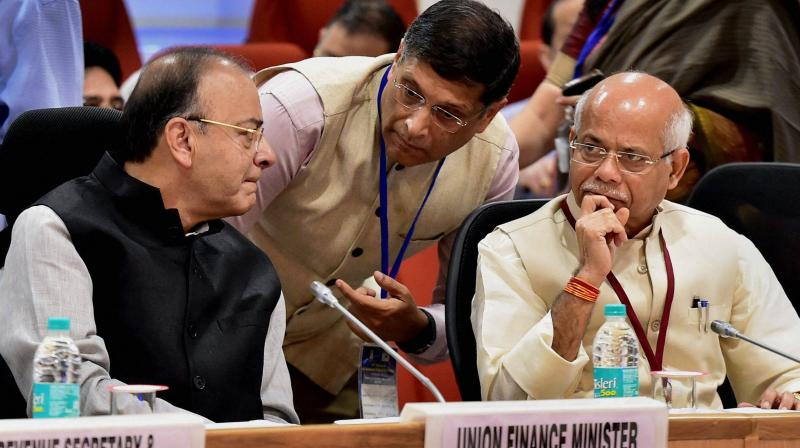GST Council: Relief for exporters, AC hotels may see tax cut
The exporters will get refunds for the tax paid by them on exports during July and August by October 18.

New Delhi: The GST Council on Friday slashed GST rate on 27 common use items and set up a ministerial panel to consider bring down tax on AC restaurants from the current 18 per cent to 12 per cent. The panel would submit its report in 14 days.
GST on unbranded namkeen, unbranded Ayurvedic medicine, sliced dried mango and khakra has been cut to 5 per cent from 12 per cent, while the same on man made yarn used in textile sector has been reduced to 12 per cent from 18 per cent.
Tax on stationery items, stones used for flooring (other than marble and granite), diesel engine parts and pump parts has been cut to 18 per cent from 28 per cent.
GST on e-waste has been cut to 5 per cent from 28 per cent. Food packets given to school kids under ICDS will attract 5 per cent tax instead of 12 per cent.
Job works like zari, imitation, food items and printing items would attract 5 per cent tax instead of 12 per cent. Government contracts involving high amount of labour will be levied 5 per cent GST instead of 12 per cent.
Addressing the delay in GST refunds to exporters, Union finance minister Arun Jaitley said they will operate under an exempted category paying a nominal 0.1 per cent GST.
From April 1, the finance minister said the council would launch an e-wallet facility for the exporters to provide liquidity.
The exporters will get refunds for the tax paid by them on exports during July and August by October 18.
Though the Council has increased the turn-over limit for composition scheme, service providers, except eateries, cannot opt for it.
The scheme cannot be opted by supplier of services other than restaurant related services; manufacturer of ice cream, pan masala, or tobacco; casual taxable person or a non- resident taxable person; and businesses which supply goods through an e-commerce operator.
No input tax credit can be claimed by those opting for composition scheme. Apart from this, the taxpayer can only make intra state supply (sell in the same state) and cannot undertake inter-state supply of goods.

